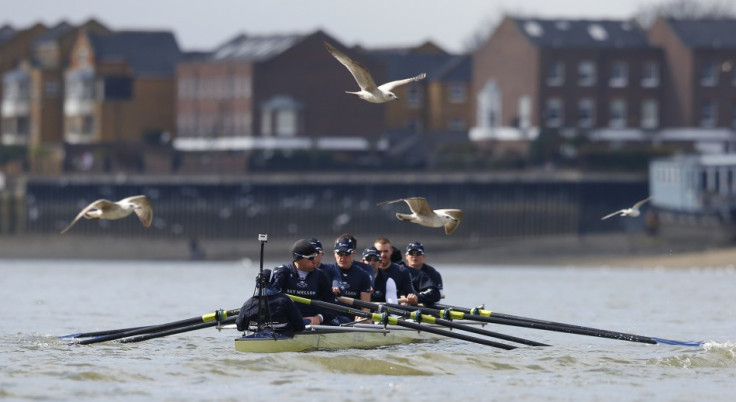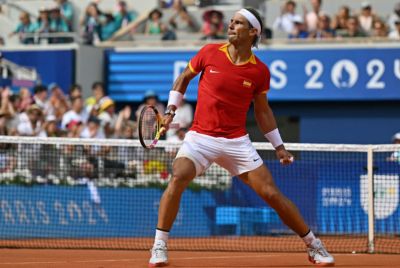Oxford Speed to Victory Over Cambridge in Varsity Boat Race

Oxford claimed a clear victory in the annual boat race against arch-rivals Cambridge on Sunday 31 March, winning the 159th race by half a length.
Despite the unseasonally cold weather, crowds lined the banks of the Thames to watch the race, which takes place over a 4.2-mile course from Putney to Mortlake.
Cambridge still hold the overall lead in the contests between the teams, with 81 wins to Oxford's 77.
Oxford won the toss and opted for the Surrey Station. They surged into an early lead, but Cambridge fought back and pushed their opponents right to the line.
But Oxford kept their lead as the river turned towards the finish past Barnes Bridge, winning in an impressive time of 17 minutes and 27 seconds.
"We stuck to what our plan was, an indestructible relentless rhythm, and that is what saw us through," Oxford cox Oskar Zorrilla said after the race.
Oxford's Constantine Louloudis said: "It was a heck of a race. We fancied our chances but Cambridge made it very difficult for us, we had to push hard."
Oxford began the day as favourites, with bookies William Hill recording 70 percent of all bets being placed on the dark blues.
The first race between the university teams was in 1829, and the 4.2-mile course from Putney to Mortlake has been used for nearly every race since 1845.
The race is rowed upstream, and is timed so that teams are rowing against the day's fastest current, usually the incoming flood tide, an hour before high tide.
The five fixed points at which times are taken are The Mile Post, Hammersmith Bridge, Chiswick Steps, Barnes Bridge and the Finish.
To begin the race, the president of the previous year's losing club tosses an 1829 gold sovereign to decide who starts where, and which side of the river confers a greater advantage is the subject of much debate.
Cambridge enjoyed a long spell of dominance in the early 20<sup>th century, when they had a 13-year unbroken run of victories between 1924 and 1936.
Oxford won the race for ten years on the trot between 1976 and 1985.
The only dead heat in the race's history was in 1877.
Four Olympians were in action today, including medallists George Nash of Cambridge, Constantine Louloudis of Oxford and his crew-mate Malcolm Howard, who won a silver medal for Canada.
© Copyright IBTimes 2025. All rights reserved.






















